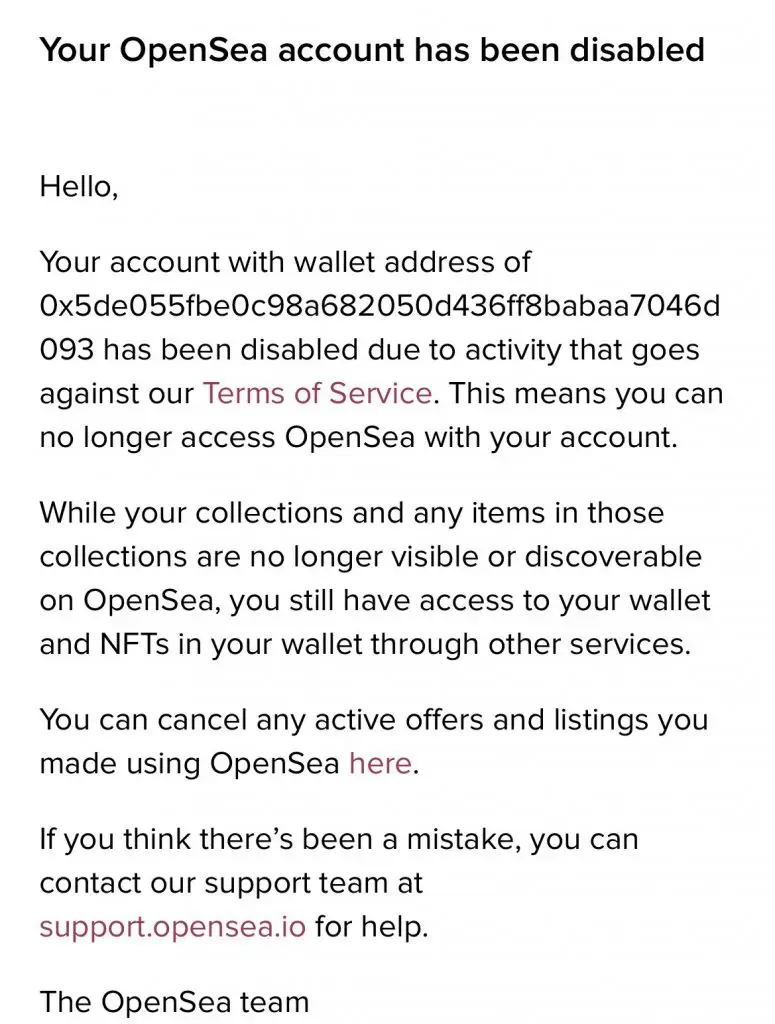U.S. Sanctions drive OpenSea to ban Cuban artists
NFTs were expected to boom this year. Sadly, the fervor that the industry started off with did not persist throughout the year. While this came as a blow to the industry, a few OpenSea artists had to deal with the abrupt blocking of the platform.
As per recent reports, a whopping 30 artists as well as collectors were banned from OpenSea. All of them were from Cuba. Therefore, the latest ban was affirmed to be due to the sanctions imposed by the United States. It should be noted that the largest NFT firm is headquartered in New York.
Speaking about the same, an OpenSea spokesperson reportedly said,
“We comply with U.S. sanctions law. Our terms of service explicitly prohibit sanctioned individuals, individuals in sanctioned jurisdictions, or services from using OpenSea.”
The NFT platform even confirmed that Cuban artists weren’t the only ones facing a ban. OpenSea pointed out that artists and collectors from Venezuela, Iran as well as Syria were subject to this policy.
Earlier this month, the Twitter page NFTcuba.ART’s OpenSea account was disabled. As seen in the below image, the account was blocked from viewing or listing NFTs on the platform.

Does this go against the purpose of Web3?
This did not settle well with the crypto community. Charles Guillemet, the CTO of Ledger took to Twitter and expressed angst about the same. He tweeted,
“The path to censorship resistance and permissionless systems is long and difficult. Centralized DApps that have to censor content simply go against the purpose of web3.”
Havana-based artists Gabriel Guerra Bianchini and Fábrica de Arte Cubano were among those who lost their accounts as well. Elaborating on the same, Bianchini said,
“We were locked in a pandemic, with an increasingly difficult economic, political, and social situation. This technology was a liberation, not only economically but creatively, a bridge that allowed us, Cuban artists, to connect with the world.”
Another Cuban NFT artist, Yordanis Garcia Delgado reportedly saw this coming. Delgado further added,
“It is very difficult to be decentralized and not be accountable to government authorities, thanks to the blockade that the USA maintains against Cuba.”
Comments
Post a Comment